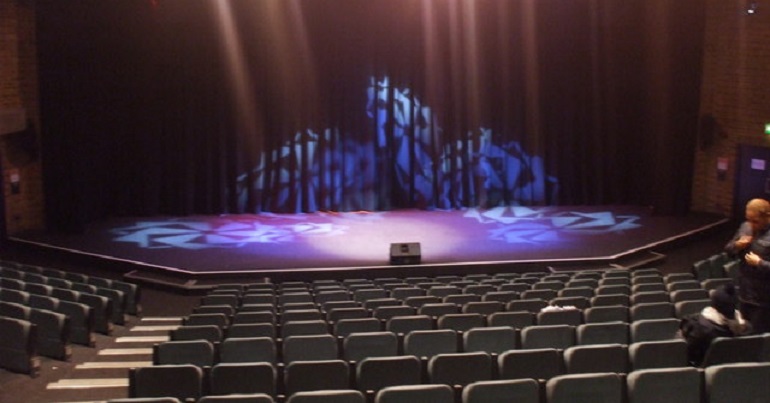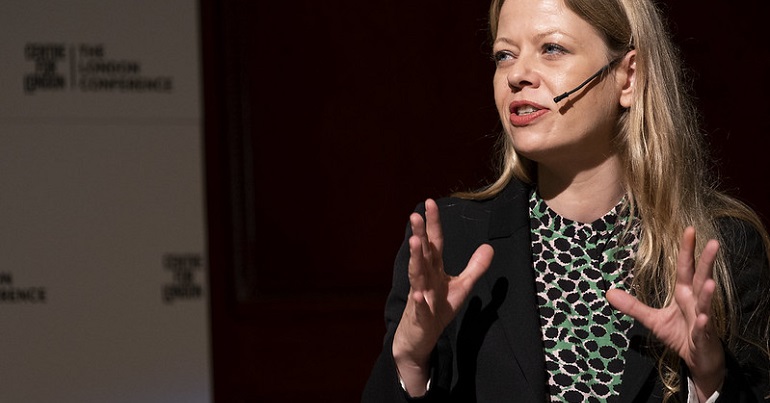We need a real “roadmap” for proper support to the arts sector

Culture Secretary Oliver Dowden’s so-called ‘roadmap’ to re-open English theatres has been widely criticised by many bodies within the cultural sector for its distinct lack of detail and ambition. The UK’s world class culture and arts sector has been hit hard by the pandemic, with social distancing making public performances an impossibility.
Pressure was piled on by 100 prominent creative figures who penned an open letter calling on the government to act fast in order to prevent a ‘cultural catastrophe’ in the UK, followed shortly after by a raft of prominent musicians who wrote of similar concerns for the music industry. This resulted in the government announcing a £1.57 billion package to prevent venues and theatres from going under. While this emergency funding is welcome it has come too late for some and only tackles the issue of creative spaces being able to survive. The question of whether or not creative workers will be able to survive remains unanswered.
Here is what I believe the government should do right now to save our beloved performing arts:
Firstly, liaise with representative bodies such as the Musicians’ Union, Equity, Help Musicians UK, Arts Council England and so on. It is the responsibility of the Minister for Digital, Culture, Media and Sport (DCMS) to be connected and aware of the plight of creatives in the UK and take appropriate action to protect their interests, especially at a time like this. However, Oliver Dowden’s ‘roadmap’ has demonstrated just how far removed he is from the reality of the sector he has been tasked with looking after. Bodies such as the Musicians’ Union have been calling on the government persistently since the pandemic hit to ensure creatives, a huge amount of whom are self-employed, don’t ‘fall through the cracks’ of the poorly designed self-employment support scheme.
Their calls have, evidently, fallen on deaf ears. Huge swathes of self-employed artists – whose work dried up at the end of March due to the lockdown – have had to wait until mid-June for any support from the government and even then they have been left to survive on far less than they were promised.
Ideally the new emergency venue funding would be continued post-Covid in order to make up for the past decade of damaging austerity and bring us in line with countries such as Germany where performing arts are around 70-80% publicly funded. It’s no secret that the arts are under-funded in this country. When the coalition government came to power in 2010 they cut Arts Council England’s funding by 30% almost immediately. This has left venues in a dire position whereby they simply cannot afford to survive for a significant amount of time with no ticket revenue. Most theatres in the UK for example, only just break even at around 60% capacity which is nowhere near feasible with social distancing measures.
Coronavirus has eclipsed another forthcoming potential catastrophe for the creative industries – Brexit. With the government using the cover of the pandemic to steer us towards a hard no-deal Brexit the creative industries face another very real threat. Many creative workers in the UK have already reported a loss of work across the EU due to Brexit and there are very real fears it could permanently slice off a huge chunk of their income. The government needs to introduce a multi-entry touring visa for all musicians, artists and crew in order to prevent unnecessary administrative and financial barriers that will kill the UK’s touring sector which is already on its knees due to Coronavirus.
On top of this, funding and infrastructure needs to be supplied for new types of performance. The performing arts sector is resilient. New ideas are popping up all the time to help weather the storm of the pandemic – immersive theatre, drive-in gigs, online workshops. The government should support these creative attempts to do performance differently by providing initial funding and also allowing and encouraging the use of large public spaces by providing arts organisations with the equipment and people required to safely put on this kind of work. The ideas are there, they just need some help to get started.
Finally, as longer-term help for the sector, the government should vigorously fight against the deeply unfair compensation musicians receive from streaming services such as Spotify in order to allow musicians, and other artists in the creative eco-system, to survive through fair payment for their work. This is a battle that has been raging for quite some time already, with bodies such as the MU and the #BrokenRecord campaign fighting for fair payment for some years now. However, like in so many areas of our culture and politics, Covid-19 has demonstrated how unjust the status quo is. With no gigs during lockdown musicians could reasonably be expected to turn to their recording output to see them through for a while. But due to streaming services’ convoluted ways of distributing money the artists who create the music only receive a fraction of a penny per stream. Millions of streams are required to earn anywhere near a reasonable amount with huge swathes going to the big record labels.
Art is essential. It’s what makes us human and, perhaps most importantly, it helps us understand what’s going on around us. Take the racial inequalities that have been enflamed yet again in recent weeks – brilliant pieces of work like SBC Theatre Company’s Where We Began helps us understand what could happen in a future where inequality is left to fester, Helen Edmundson’s adaptation of Andrea Levy’s novel Small Island, which was streamed for free recently by the National Theatre as part of their ‘NT At Home’ programme, helps us understand some of the history of these issues. It’s this kind of generous and crucial art that is at risk and if it were to be lost we would be infinitely poorer, and not just financially.
PS. We hope you enjoyed this article. Bright Green has got big plans for the future to publish many more articles like this. You can help make that happen. Please donate to Bright Green now.
Image credit: Phillip Perry – Creative Commons




Leave a Reply